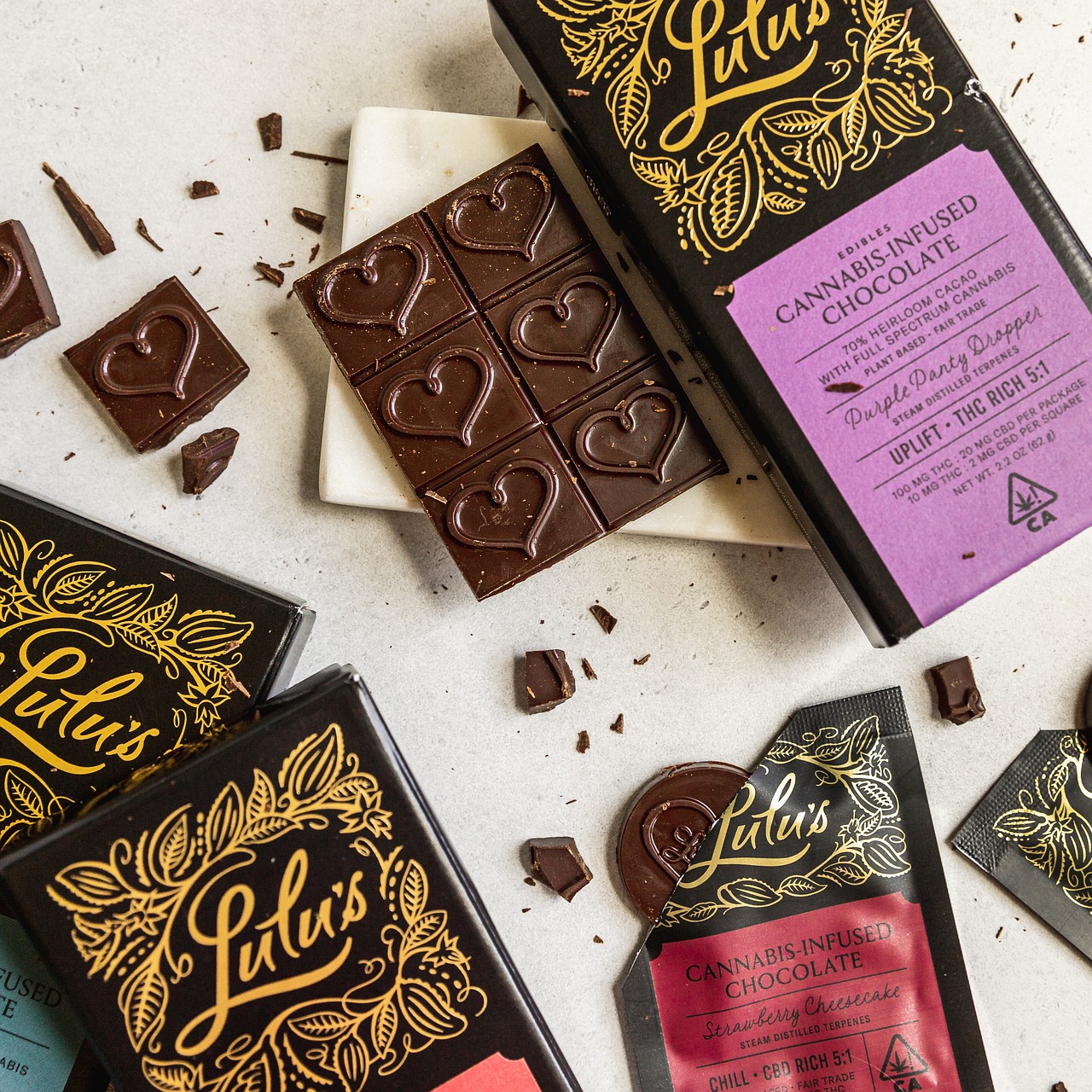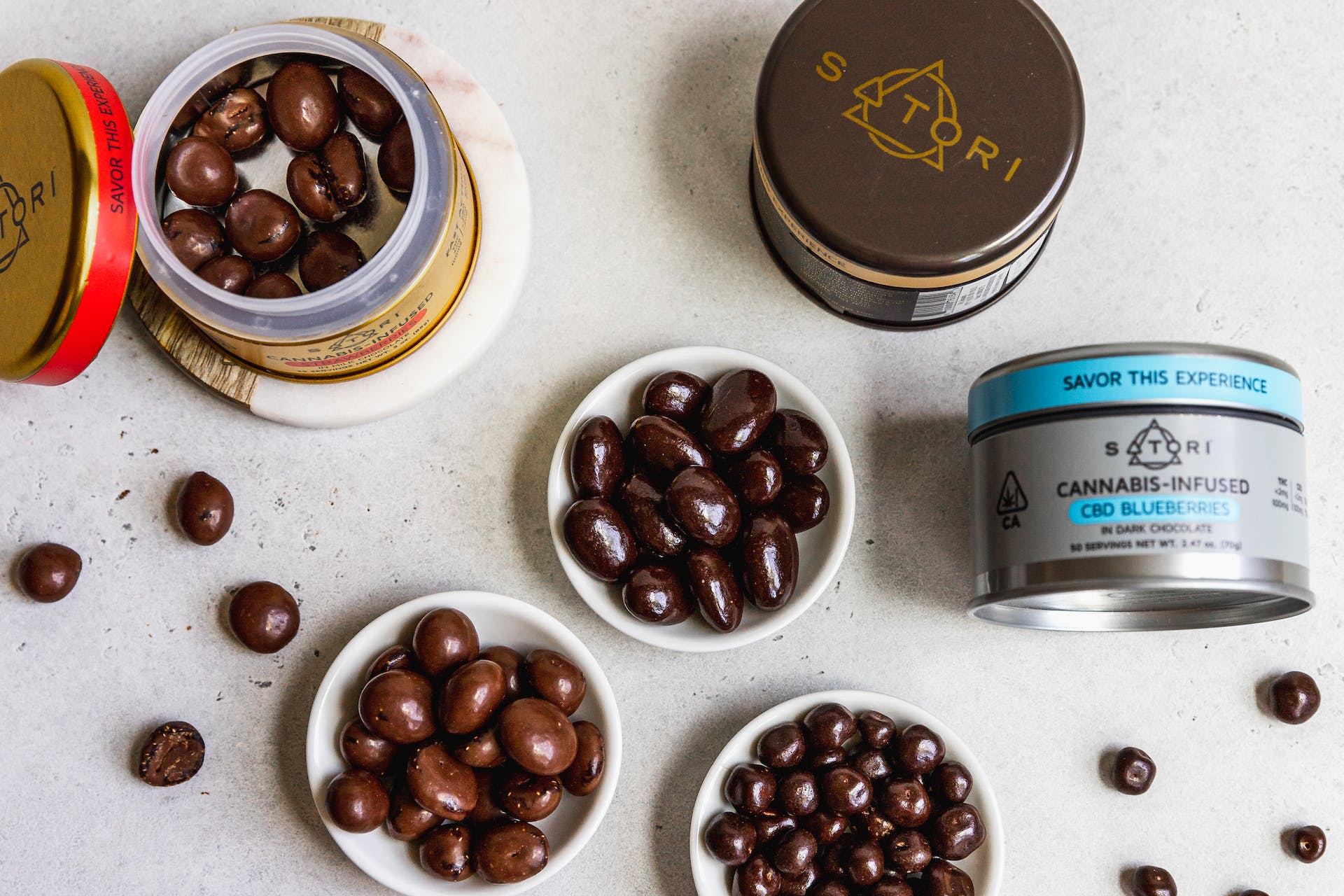Strongest Edibles Canada: Must Try Brands
Exploring the Canadian cannabis market for potent marijuana edibles presents significant challenges. For individuals who use cannabis edibles for their medicinal benefits, finding the right potency is not only essential but often a source of frustration.
Finding the strongest edibles Canada just got easier. Discover the best edible brands and quality products from online dispensaries. If you’re an experienced user or new to the scene, you can browse from baked goods to gummies, chocolates, beverages, and some most popular strong edibles.
Read on to learn more about the world of potent edibles with Cannabis Den to enhance your cannabis experience every step of the way.
Table of Contents

Edibles in Canada
Sylvain Charlebois, a food distribution and policy Professor at Dalhousie University in Halifax, and Janet Music, a PhD student in Social Anthropology at the same university, have found that people are quite open to the idea of edible cannabis.
In the U.S., where cannabis is legal for recreational use, edibles represent about 12% to 15% of the market. In Canada, cannabis-infused edible products hit sales of $4.1 billion in 2022. This growth in the edible cannabis sector offers great opportunities for growth for producers and retailers.
However, it’s not without its challenges for newcomers. Many consumers who want to include cannabis in their diets without resorting to prohibited sources or consuming more sugar are trying to cook with cannabis at home. But this has its own risks, which are often not addressed by the current regulations.
A survey from Dalhousie University shows that many Canadians don’t know much about cannabinoids. Only about 31% understood that CBD, a component in cannabis, doesn’t have psychoactive effects but does have therapeutic benefits. Despite the growing interest in CBD, especially in the food industry, there’s still a lack of understanding about what it is and its benefits.
THC vs. CBD Edibles
THC (Tetrahydrocannabinol) and CBD (Cannabidiol) are both compounds found in cannabis, but they have different effects and are used in edibles for different purposes:
THC Edibles
- Psychoactive Effects. THC is the compound responsible for the psychoactive effects of cannabis. Edibles containing THC will produce a ‘high.’
- Recreational Use. Often used recreationally for their euphoric and relaxing effects.
- Dosage Caution. The effects of THC can be more intense and longer-lasting when ingested compared to smoking.
CBD Edibles
- Non-Psychoactive. CBD does not produce a psychoactive effect. It’s used for therapeutic purposes without the ‘high.’
- Medical Benefits. Commonly used for anxiety, pain relief, inflammation, and several other medical conditions.
- No Dosage High. Consuming CBD in edible form is not associated with the risk of getting ‘high,’ allowing for larger dosages.
Different Forms of Weed Edibles – Must Try Brands and Samples
| Form | Description | Brand | Sample |
| Baked Goods | A classic and discreet way to consume edibles. They blend the familiar comfort of homemade baked treats with the effects of cannabis. | Ganja Edibles | Oatmeal Chocolate Chip Cookie |
| Chocolate Bar | A delicious and easy-to-consume option for enjoying edibles. A blend of the rich, indulgent taste of chocolate with the desired effects of cannabis. | Potluck | Matcha White Chocolate – THC |
| Gummies and Jelly | A fun, sweet, and inconspicuous way to consume edibles. Made for those who prefer not to taste the herb. | Bliss Holidaze Edition, Twisted Extracts, Boost, Euphoria Psychedelics, BlossomX, etc. | Flavours: Watermelon, Pineapple, Cola, Orange, Cherry, Blue Raspberry, etc. |
| Tea, Coffee, and Hot Chocolate Mix | A comforting and soothing way to consume edibles. Perfect for relaxing or unwinding. | BlossomX | CBD Infused Green Tea, Coffee Grounds – Medium Roast, and Hot Chocolate Mix |
Health Benefits of Potent Weed Edibles
Medical marijuana patients use cannabis edibles for various health benefits and relief. These benefits include:
-
Pain
THC and CBD affect how our bodies perceive pain by altering how pain receptors work. This unique interaction is why medical cannabis is sometimes used as an alternative to opioids. It also shows promise in reducing the use of sedatives and alcohol.
An interesting study at Oxford University involved 12 participants who were given either 15 mg of THC or a placebo. The goal was to see if THC could reduce the pain caused by a cream containing capsaicin, the hot and burning component of chilli peppers. They also used non-painful creams as a control. Each participant underwent four MRI scans during the study.
Half of the participants noticed a significant change in how much the pain bothered them. Although the burning sensation from the capsaicin didn’t decrease, the discomfort from it seemed to be less troubling when THC was used.
Brain scans revealed reduced activity in the mid-cingulate cortex, a part of the brain linked to the emotional response to pain. Additionally, changes were observed in the right amygdala, associated with the reduced perception of pain after taking THC.
-
Cancer
Cannabis may aid in the treatment of certain types of cancer, as these cancers possess special receptors that respond to substances found in cannabis.
These substances can tell cancer cells to slow their growth or destroy themselves. Cannabis also contains other components, like terpenes, which may help fight cancer.
Yet, cannabis isn’t always effective against all types of cancer. Also, it’s usually not enough by itself to treat cancer; most of the time, treatments like chemotherapy or radiation are still needed.
-
FNDs (Functional Neurological Disorders)
FND is quite rare, affecting about 12 to 22 out of every 100,000 people. It’s a major reason people see neurologists, mainly second to headaches.
Dipak Hemraj, a cannabis grower, says in his article that cannabis might help treat FND due to reasons like:
- Neuroprotection. Compounds in cannabis, such as CBD and CBG, protect the brain.
- Reducing Inflammation. Cannabis, especially THC and CBD, might lower inflammation.
- Serotonin Activation. CBD helps with anxiety and depression by activating serotonin receptors.
- Anticonvulsant Properties. CBD and THCA in cannabis can help control seizures.
- PTSD Treatment. THC and CBD might be effective for PTSD.
- Reducing Medication Dependency. Cannabis can lessen the need for more addictive medications like opioids and antidepressants.
-
Arthritis
Dr. Sheng-Ming Dai’s research at China’s Second Military Medical University found that people with arthritis have high levels of CB2 receptors in their joint tissue. CBD may activate these receptors and reduce inflammation. Also, the terpene beta-caryophyllene, which selectively works on CB2 receptors, could help reduce inflammation.
Another research, including studies by Dr. Jason McDougall and Melissa O’Brien, suggests that cannabinoids could aid in repairing joint tissue. The type of cannabinoid and its ratio might vary depending on the arthritis type.
-
Obesity
Studies suggest that smoking cannabis can speed up your metabolism. This means your body might burn calories faster, both when you’re active and at rest, which can lead to weight loss.
Also, cannabis could help with pain and stress. Less pain might make you more active and likely to exercise, which is good for keeping a healthy weight.
Stress can lead to weight gain by increasing levels of certain hormones like cortisol. Research indicates that stress can make people more prone to obesity. But if you’re less stressed, you might sleep better. And good sleep is linked to a lower chance of being overweight. Cannabis, particularly CBD, has been shown to help some people sleep better, especially those who have trouble sleeping.
Edibles Canada from Cannabis Den
Discovering the strongest edibles in Canada is now simpler. Explore top edible brands from Cannabis Den. Explore a wide range of options, including baked goods, gummies, chocolates, beverages, and other popular potent edibles.
Frequently Asked Questions
Can I build a tolerance to potent edibles?
Yes, like with any cannabis product, regular consumption can lead to tolerance. Taking breaks between uses can help maintain sensitivity and avoid the need for higher doses.
Can I mix different types of strong edibles to increase potency?
It’s not recommended to mix edibles without understanding their individual effects. Combining different types, such as cannabis oil, brownies, and candies, can lead to unpredictable outcomes, including heightened potency and unexpected side effects.
Especially when dealing with high dose items like those containing 1000mg THC, it’s important to focus on each product’s unique impact. Chronic pain patients using tinctures or sativa-based buds should be cautious.
Even when ordering from an online dispensary for the first order, understanding the dose is important. While some users might desire to eat a combination of products to counteract certain symptoms, it’s necessary to carry a clear understanding of each item’s effects.
How long does it take for strong edibles to take effect?
The onset time varies but generally ranges from 30 minutes to 2 hours. Factors such as metabolism, empty stomach vs. full stomach, and individual differences contribute to the variability.
Sources:





